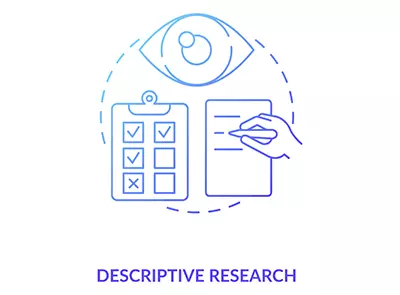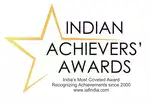An Expert's Guide to Successful Quantitative Descriptive Research
Quantitative descriptive research is a vital component of effective market research strategies employed by quantitative research companies and agencies like Unimrkt Research. By utilizing robust methodologies and techniques, a market research company can help gather, analyze, and interpret large datasets to uncover crucial insights. By hiring quantitative market research services, businesses gain a deeper understanding of consumer preferences, market trends, and key drivers of their target audience. Leveraging the power of online market research will help you get a comprehensive overview of the industrial landscape. This will enable you to confidently navigate the complex business landscape and unveil actionable insights that drive successful decision-making and propel your organizations toward growth and success. In this blog, we will discuss what it takes to develop and execute a successful quantitative descriptive research campaign. Let’s get started.
What is Quantitative Descriptive Research?
Quantitative descriptive research methods are used to systematically collect and analyze numerical data to describe or summarize a population or phenomenon. It focuses on the objective measurement and statistical analysis of data to provide a clear and concise summary of the research topic. Such a quantitative market research approach aims to quantify variables, such as consumer preferences, behaviors, attitudes, or market trends, using structured surveys, questionnaires, or other data collection methods. The collected data is then analyzed using statistical techniques to generate descriptive statistics, such as means, frequencies, or percentages, which provide a quantitative summary of the research findings. In essence, quantitative descriptive research provides a systematic and objective approach to understanding and describing complex phenomena, enabling researchers and businesses to make data-driven decisions based on concrete evidence.
Advantages of Quantitative Descriptive Research
Descriptive research offers several advantages that make it a valuable research method in various fields. Some key advantages of include:
Provides a Clear Description
Descriptive research allows researchers to accurately describe and document the characteristics, behaviors, or attitudes of a particular population or phenomenon. It helps in capturing a snapshot of the current situation or understanding the existing trends.
Objective and Quantifiable Data
Descriptive market research relies on the collection of quantitative data, which can be measured and analyzed objectively. This enables researchers to draw reliable conclusions and make data-driven decisions based on statistical analysis.
Useful for Exploratory Purposes
Such a research method is often used as an initial step in the research process, particularly in exploratory studies. It helps in identifying patterns, relationships, or trends, which can then be explored further using other research methods.
Provides Baseline Information
Descriptive research provides baseline information about a population or phenomenon, which can be used for comparative purposes in future studies. It establishes a benchmark against which changes or progress can be measured.
Cost-Effective and Efficient
Descriptive quantitative market research is typically less time-consuming and more cost-effective compared to other research methods. It allows researchers to collect data from large sample sizes and analyze it quickly using statistical software.
Helps in Decision-Making
The insights gained from descriptive market research can help in decision-making processes in various domains. Businesses can use descriptive research findings to understand customer preferences, market trends, or product performance, which can guide strategic planning and marketing initiatives.
Data Collection Methods
Here are the different data collection methods deployed in quantitative descriptive market research:
Surveys/Questionnaires
Surveys and questionnaires are widely used data collection methods to gather information from many participants. They are structured instruments that enable researchers to collect data on specific variables or research questions. Surveys typically consist of a series of questions that participants respond to, either through self-administration or with the assistance of an interviewer. These data collection methods offer several advantages, including scalability, cost-effectiveness, and the ability to gather a wide range of information in a standardized manner.
Existing datasets
Existing datasets refer to pre-existing sources of data that have been collected for other purposes, such as government surveys, public databases, or organizational records. Researchers can tap into these rich sources of data to address their research questions or explore new insights without conducting primary data collection. This method offers several advantages, including cost savings, time efficiency, and access to large and diverse datasets. By leveraging existing datasets, researchers can analyze trends, patterns, or correlations, and draw conclusions based on the available data. However, it's crucial to ensure the reliability, validity, and relevance of the existing datasets to the research objectives.
Interviews
This method allows for in-depth exploration of research questions, as researchers can probe and seek clarification to obtain rich and detailed responses. Interviews can be conducted in-person, over the phone, or through video conferencing, offering flexibility in reaching participants. They can be structured, semi-structured, or unstructured, depending on the level of guidance and flexibility required. Interviews provide opportunities for participants to express their experiences, perspectives, and emotions, which may not be captured through other data collection methods. Researchers can build rapport with participants, create a comfortable environment, and adapt the interview approach to elicit comprehensive and nuanced responses. The insights derived from interviews can contribute to a deep understanding of complex phenomena and can inform decision-making, policy development, or further research exploration.
Final Word
As you embark on your quantitative descriptive research journey, you must consider the specific research objectives, select appropriate data collection methods, analyze the data rigorously, and draw meaningful conclusions. In this regard, working with a reliable quantitative market research firm with proven experience can make all the difference. When seeking descriptive quantitative research services, look no further than Unimrkt Research. We employ different types of market research methods to help you find the right kind of multilingual data across industries around the globe. To know more about our market research services, call +91-124-424-5210. You can also email sales@unimrkt.com or fill out our contact form, and we will respond at the earliest.
Quick Enquiry
Customer Service, We Make it Better
Recent Posts
- How to Clarify and Align Your Research Goals for Maximum Impact
- Mining Valuable Data: The Driving Force for an Effective Growth Marketing Strategy
- Speaking the Customers Language: 7 Tips for Meaningful Qualitative Research
- Creating Value for Investors: The Benefits of Primary Market Research
- Utilizing Closed-Ended Questions For Quantitative Market Research
- Capturing the Changing Interests of Millennials Through Qualitative Research
- Refining Unit Economics with Robust Quantitative Market Research
- A Concise Guide to Quantitative Market Research
- 3 B2B Market Research Trends That Could Shape 2024
- Eyes on 2024: Changes That Might Disrupt the Healthcare Industry This Year
- Cracking the Language to Make Survey Questions Inclusive in 2024
- Attracting Investors: How Market Research Can Solidify Your Case
- Solid Foundations: Ways to Enhance Trustworthiness in Qualitative Research
- What Makes CATI Research So Effective?
- Moderator Qualities That Improve Qualitative Market Research
- 5 Consumer Market Trends That Will Define 2024
- What are the strengths of quantitative research?
- How to Make Your Partnership with Primary Market Research Firms Fruitful
- A Quick Guide to Harnessing the Strengths of Quantitative Research
- Advice from Your Research Partner: Don't Compromise Quality on Online Surveys













